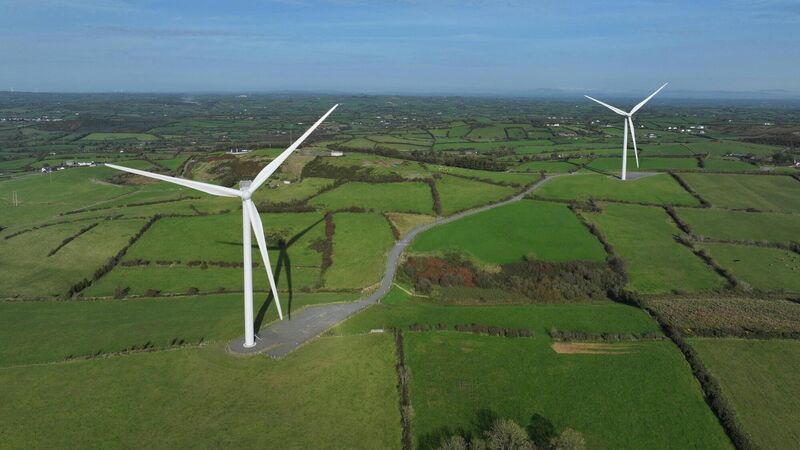Public does not believe Ireland can meet 2030 carbon emission targets

Despite skepticism of Ireland reaching emission targets, 78% of the public support large scale infrastructure projects such as offshore wind energy projects.
There is growing skepticism in Ireland reaching its 2030 carbon emission targets with only 6% of people now believing a 51% reduction is feasible by then.
The '2025 Powering Tomorrow' report from KPMG also found that more than half of the public are not willing to pay higher taxes or energy costs to facilitate energy transition. The survey was carried out for KMPG by Red C Research, taking opinions of more than 1,000 adults in Ireland in November and December.
While support for renewable energy products remains strong, 57% of respondents say they should not pay higher taxes to facilitate the energy transition, while 54% also say they are not willing to incur higher energy costs to fund the transition. Nevertheless over three-quarters (77%) of those surveyed support renewable energy projects near their homes and 78% support large scale infrastructure projects such as offshore wind energy projects, though support for high-voltage power lines remains low at 36%.
"Our findings show strong public support for change, but not when it comes to the cost burden," said KPMG global head of power and utilities Colm O'Neill. "Unlocking our renewable energy potential will require greater education and engagement with all of the stakeholder groups, including the general public, comprehensively communicating the plan to get to Net Zero, it’s central importance to Ireland’s energy security and independent, and the benefits it will bring to the country’s climate action agenda."
Russell Smyth, KPMG head of sustainable futures said despite changes in political leadership both domestically and globally, climate change concerns remain unchanged, which is encouraging. "It is also encouraging to see that the new Government programme includes actions to achieve a 51% reduction in emissions from 2018 to 2030 and net-zero emissions by 2050. This should be a significant priority as, according to the Irish Fiscal Advisory Council, the State could face a cost of €20bn if it fails to achieve carbon emission reductions by 2030. However, public confidence in Ireland’s ability to achieve our targets is very low. Instilling confidence requires clear and transparent communication about how we plan to achieve them, coupled with the concrete actions that will deliver measurable progress."
Over 7 in 10 (74%) are more likely to back large-scale infrastructure projects if they create local jobs.
One-third (32%) feel that Ireland should shift to a combination of low-emission fossil fuels and renewable energy sources. Two thirds of survey respondents (63%) support a balanced approach that prioritises renewable energy while retaining some fossil fuel use, and only 17% think Ireland should phase out all fossil fuel generation completely as soon as possible and rely completely on renewable energy resources.
Energy efficiency upgrades also resonate, with 53% planning to enhance home efficiency through measures like insulation, new windows, or solar panel installations. Some two in five respondents have upgraded their home energy efficiency in the last 12 months.
Regarding travel, 51% are ready to increase public transport, cycling, or walking to reduce emissions. However, only 30% would consider purchasing an electric or hybrid vehicle, only 32% would fly less, and just 22% would pay a premium for air travel using green fuels.
Less than half (44%) of those surveyed would not switch to an electric vehicle (EV) in the next five years, with cost remaining the most significant barrier for all three vehicle types — electric, plug-in hybrids, and non-plug hybrids.





